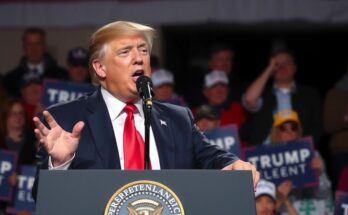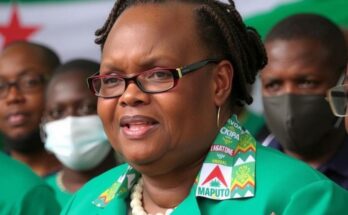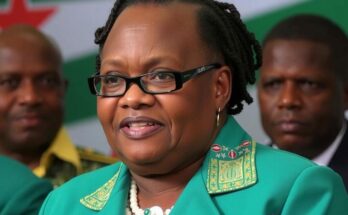Yamandu Orsi has been elected as Uruguay’s President, defeating incumbent Alvaro Delgado in a closely contested run-off. With nearly 90% voter turnout, Orsi represents the Broad Front coalition, promising national unity and addressing urgent issues like poverty and crime. His victory illustrates a shift towards anti-incumbent sentiments in response to economic discontent, while maintaining a moderate approach reminiscent of previous administrations that emphasize socio-economic progress.
In a significant electoral upset, Yamandu Orsi, a leftist candidate from Uruguay’s Broad Front coalition, has won the presidential run-off against incumbent Alvaro Delgado of the centre-right governing coalition. With 49.8% of the votes tallied against Delgado’s 45.9%, Mr. Orsi’s victory marks a notable shift in Uruguay’s political landscape amidst global trends of anti-incumbent sentiment. Mr. Orsi, described as a political heir to former President Jose “Pepe” Mujica, emphasizes national unity and seeks to address pressing issues such as poverty and organized crime. Deliberately avoiding radical changes, he mirrors many policies of previous Broad Front administrations that fostered economic growth and social reforms over their 15-year tenure.
Mr. Orsi’s victory occurred against the backdrop of a voter turnout of nearly 90%, demonstrating Uruguay’s robust democratic engagement. Alvaro Delgado conceded defeat with a composed statement to his supporters, reflecting on the nature of electoral loss yet expressing a commitment to continue striving within the political framework. Mr. Orsi proclaimed the election a triumph for liberty, equality, and fraternity while aiming to forge a more integrated society. Analysts note that the election was characterized by general consensus between the candidates on critical issues, distinguishing it from other populist movements seen globally. This recent electoral shift may suggest a broader pattern in which voters, frustrated by economic challenges post-pandemic, are leaning towards opposition parties, reshaping the political narrative within the region.
The election of Yamandu Orsi as President of Uruguay follows a trend of changing political sentiments in various parts of the world, particularly against incumbent administrations facing criticism over economic performance and governance. Uruguayan voters demonstrated a clear preference for Orsi’s proposals, reflecting a desire for leadership that offers social equity and economic responsiveness. The election also serves as a reminder of Uruguay’s stable political environment, even as other nations grapple with rising populism and discontent, highlighting the significant role of democratic institutions and civic engagement in shaping outcomes.
Yamandu Orsi’s victory signifies a pivotal moment in Uruguay’s political landscape, reaffirming the strength of the Broad Front coalition after years of conservative rule. His approach appears focused on continuity rather than overhaul, advocating for policies that resonate with both past successes and current challenges. The election results not only reflect the sentiments within Uruguay but also sit within the larger context of global electoral dynamics, where voters increasingly challenge the status quo in search of more responsive governance.
Original Source: www.expressandstar.com




